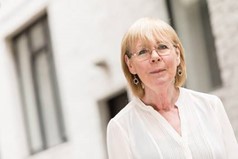We asked Maureen McGarvey, who created the series of Academic Management courses for IH, to share her thoughts on observation and giving feedback, here is what she had to say.
Observation of classes is one of the mainstays of any school’s CPD (Continuing Professional Development) programme. Many of us have gone through Certificate and Diploma courses where observed teaching practice brought the input sessions to life, and feedback from our course tutors and colleagues encouraged and developed us to become more effective classroom practitioners. We may have had great lessons, we may have had disasters, but we learned from them all.
Given that we have had so much experience of being observed, it should be really easy, when you become an academic manager, to be an effective observer, right? After all, you just have to mirror what your tutors did when they observed you. How hard can it be? In many years of working with new and experienced academic managers, we have found the answer to that question to be ‘Quite hard indeed, sometimes!’ Receiving feedback from a course tutor is very different from delivering feedback to a member of your teaching team. Working with teachers who are new to the profession, and also new to your context, course types and age groups is quite a challenge. You want to build their confidence and support them, but you also want to help them to become effective reflective practitioners, able to make, and justify, their classroom decisions, not only ‘do what you tell ‘em to do.’ Working with more experienced colleagues [some of whom may have more experience than you do!] is another challenge. What can you say that they haven’t heard before? Do you have anything to offer them? What if their previous experience in another school isn’t appropriate to your students and their needs; what do you do?
Then there are the practical issues; how often should you observe teachers, what type of observation should you adopt, what format should the written feedback sheet take…. And that most vexatious of questions; how can you give oral feedback to teachers which is both clear, objective, and developmental? How can we shift teachers’ perceptions of observation from a single event to an inherent part of the life of your school?
The online module on Observation and Feedback places you in a community of practice with other academic managers who are working with some, or all, of these questions. It gives you the space to explore how to approach classroom observation and offers a range of approaches you can adopt. More importantly, working with your study group and with the active support of your course tutor, you can share problems, solutions, and approaches in a way that is often not possible with colleagues in your school. You can watch discussions with experienced academic managers talking about their views on observation and feedback and share your opinions about this. You can explore the issue of what effective teaching is in your context, and how you can support teachers to become even more effective. Through Discussion Forums and Portfolio Tasks, you will take a systematic approach to evaluating how you observe teachers, and, also, what you do next. And you have an experienced tutor with you, developing your discussions and providing resources for post course reading/reflection.
Observing is often a delight, sometimes a challenge, and sometimes a surprise. We hope this course will be all of those things for you as well, and support you in your own development as an effective observer.
Find out more information about the next course on observation and giving feedback.

Maureen McGarvey has been involved in ELT since 1974. She has been a teacher, teacher trainer, and academic manager at middle and senior management levels. She has also been Programme Manager for a range of eLearning programmes, primarily focussing on teacher development, trainer development and academic manager development. Her main areas of interest are academic manager development, CPD for teachers and integrating online and blended learning programmes with whole-school development. She is a frequent conference speaker on issues related to academic management.